Lady Macbeth: Unravelling the Complexities of Shakespeare’s Iconic Character
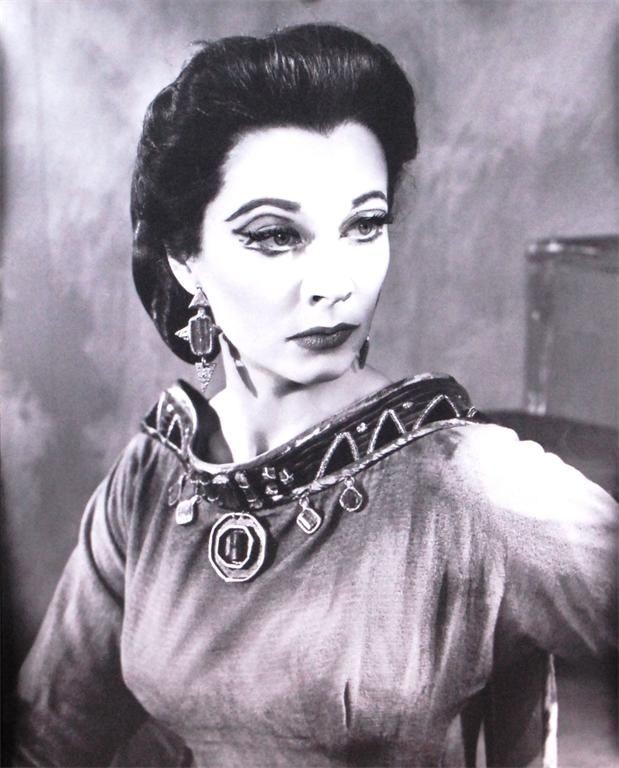
Lady Macbeth, one of Shakespeare’s most captivating and enigmatic characters, continues to intrigue readers and audiences alike centuries after her creation. As the ambitious and ruthless wife of Macbeth, she plays a pivotal role in one of the Bard’s darkest tragedies.
Through her compelling presence and the complex layers of her personality, Lady Macbeth leaves an indelible mark on the play, raising profound questions about power, gender, and the human psyche.
The Power-hungry Temptress
Your face, my Thane, is as a book where men may read strange matters. To beguile the time, look like the time; bear welcome in your eye, your hand, your tongue; look like the innocent flower, but be the serpent under’it.
Macbeth Act 1, Scene 5
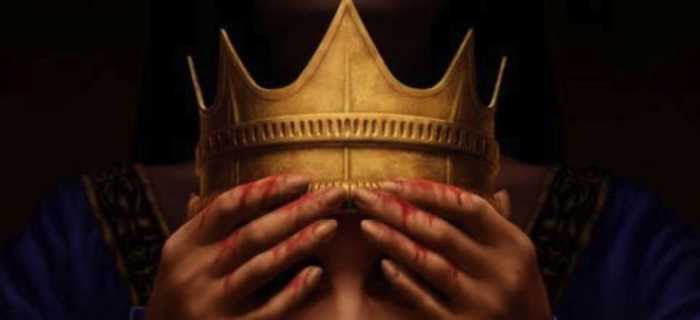
From the outset, Lady Macbeth is established as a woman driven by an insatiable hunger for power. When she learns of the witches’ prophecy that Macbeth is destined to become king, her desire to accelerate their fate consumes her. Unbound by societal expectations of femininity, she challenged the traditional gender roles of her time, symbolizing a potent force of female agency in a male-dominated society.
The Manipulative Puppeteer
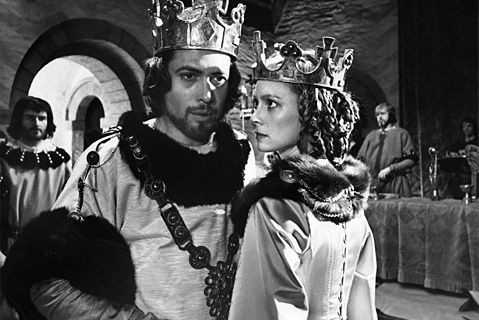
What cannot you and I perform upon the unguarded Duncan? What not put upon his spongy officers, who shall bear the guilt of our great quell?
Macbeth Act 1, Scene 7
Lady Macbeth possessed an uncanny ability to manipulate her husband, Macbeth, by using her sharp wit and persuasive charm. Through her skilful rhetoric, she provoked his ambitions and fuelled his murderous intent. Her unyielding determination to seize the throne drove her to manipulate her spouse, preying on his weaknesses and sowing the seeds of guilt and doubt in his mind. This calculated manipulation unveils her astute understanding of human psychology, highlighting her complexity as a character.
The Fragile Façade
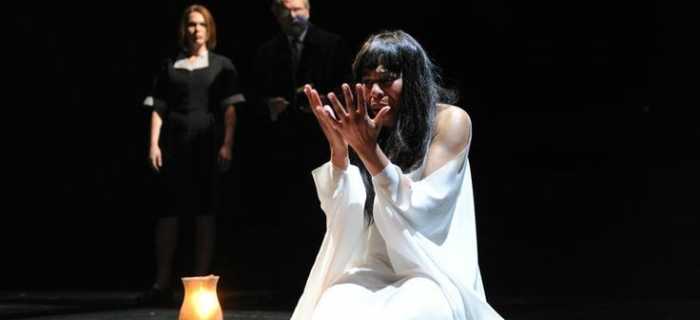
Out, damned spot! Out, I say! One, two: why then, ’tis time to do’t. Hell is murky. Fie, my lord, fie, a soldier, and afeared?
Macbeth Act 5, Scene 1
Beneath Lady Macbeth’s resolute exterior lied a fragile psyche. Despite her ironclad determination, she found herself plagued by guilt and remorse after the bloodshed began. Her famous sleepwalking scene, where she was obsessively trying to cleanse her hands of imagined bloodstains, revealed the profound psychological toll exacted by her role in the regicidal plot. This vulnerability humanizes her character, presenting her as a victim of her own ambition, struggling to reconcile her actions with her conscience.
The Exploration of Gender
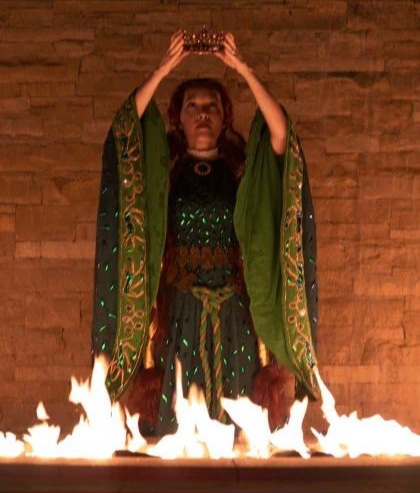
Lady Macbeth challenged the traditional gender norms of her time, defying the expectations imposed on women. Her desire for power transcended societal limitations, and she actively rejected her femininity, calling upon dark spirits to “unsex” her and fill her with masculine strength. In doing so, she asserted herself as a force to be reckoned with – defying the passive, submissive image assigned to women during the Renaissance era. Shakespeare’s portrayal of Lady Macbeth highlighted the complex relationship between gender, power, and identity.
Come to my woman’s breasts, and take my milk for gall, you murd’ring ministers!
Macbeth Act 1, Scene 5
The Significance of Lady Macbeth’s Character in the Play
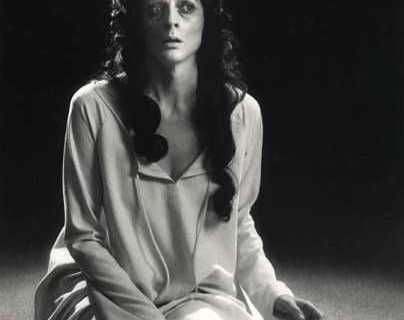
Lady Macbeth’s character is central to the plot of Macbeth. Without her ambition and manipulation, it is unlikely that Macbeth would have ever become king. Lady Macbeth’s character also raises important questions about gender roles and power dynamics, as she seeks to take on a traditionally masculine role in order to achieve her goals. Lady Macbeth’s guilt and descent into a mental breakdown also adds a layer of complexity to the play, as readers are shown the consequences of ambition and betrayal.
Lady M is often compared to other strong and complex female characters in Shakespeare’s plays, such as Cleopatra from Antony and Cleopatra and Volumnia from Coriolanus. Like Lady Macbeth, these characters are ambitious and powerful, but also suffer from their own flaws and weaknesses. However, Lady Macbeth is unique in her willingness to manipulate and control others in order to achieve her goals, making her one of the most complex and intriguing female characters in all of literature.
Lady Macbeth’s Soliloquies
Lady Macbeth has several famous soliloquies throughout the play, including her “unsex me” soliloquy in Act 1 and her sleepwalking scene in Act 5. These soliloquies offer a glimpse into Lady Macbeth’s inner thoughts and motivations, revealing her ambition, guilt, and descent into mental instability. Literary analyses of these soliloquies have revealed the complex and multi-faceted nature of Lady Macbeth’s character, as well as the themes of gender roles, power dynamics, and the consequences of ambition.
Lady Macbeth in Act 1, scene 5-7
Come, you spirits
That tend on mortal thoughts, unsex me here
And fill me from the crown to the toe top-full
Of direst cruelty!
Make thick my blood,
Stop up the access and passage to remorse,
That no compunctious visitings of nature
Shake my fell purpose, nor keep peace between
The effect and it!
In this soliloquy, Lady Macbeth offers herself to be possessed by evil spirits. Why would a person offer themselves to evil spirits? Lady Macbeth wanted Duncan dead – as a King, God protected him, so for Lady Macbeth to penetrate that protection she had to appeal to the dark side to assist her in her plan. When she says to the spirits, “unsex me”, she wanted them to take away from her the fragile heart of a woman and instead give her the ruthlessness that is associated with men. Lady Macbeth’s determination to get rid of Duncan in order for Macbeth to become King became toxic and dangerous.
Lady Macbeth in Act 5, scene 1
There is a spot
Come off you damned spot! Come off, I said! One ring, two rings. Well then, it must be time to do it. Hell is a murky place! Come on, my love, come on! You are a soldier and you’re afraid? Why should we be afraid that someone will find us out when no one can challenge our power? Still, who would have thought old Duncan would bleed so much?
The Thane of Fife also had a wife. What happened to her? What will these hands never be clean? Stop that my love, stop that. You are going to ruin everything by showing so much fear.
I can still smell the blood. All the perfume in Arabia could not stop my hand from smelling.
Oh! Oh! Oh!
Wash your hands and put on your robe, do not look so sick with fear. I will say it again, Banquo is buried in the ground and he is not going to come out of his grave!
Go to bed, go to bed. I can hear knocking at the gate. Come, come, come, come hold my hand. We cannot undo what we have done. Go to bed, go to bed, go to bed.
(Modern Translation)
In this soliloquy, the audience and readers can now see how the guilt of killing Duncan and Banquo is haunting Lady Macbeth. Her conscience gets the better of her, she starts hallucinating and she unconsciously reveals everything in her sleep. Her guilty conscience drove her to mental instability because her mind was struggling to come to terms with what her and her husband had done, all in the name of power. Being over ambitious can mentally destabilize a person.
Lady Macbeth, with her unwavering ambition, manipulative tactics, and ultimate descent into guilt and madness, stands as a compelling and complex character in Shakespeare’s canon. Her portrayal challenges societal expectations of gender, offering a nuanced exploration of power and its consequences. Lady Macbeth’s legacy endures as a timeless symbol of ambition and the human capacity for both triumph and tragedy. Lady Macbeth`s downfall serves as a cautionary tale, a stark reminder of the consequences that await those who choose to abandon their moral compass in the pursuit of power. Her journey serves as a potent reminder of the fragile balance between ambition and morality. Through her character, Shakespeare invites readers and viewers to ponder on the intricacies of the human psyche and the price one pays for succumbing to unchecked desires.
Some might say Lady Macbeth was not evil, rather, she was a mentally ill someone who was overly ambitious – what do you say?
What do you think? Leave a comment.











I always had a theory that Lady MacBeth was the one who called evil on to her and her husband both. I always thought that she summoned the dagger that MacBeth saw. I thought she was more powerful than the witches. It’s only after she dies that MacBeth falls. My English teacher and I argued on it for all 3 weeks we covered this topic in class. Lmao!
I would like to know what the repercussions (grade wise) and final conclusions of said discussion were.
Although this is a very different interpretation which i am going to make a note of may i add! isnt macbeth’s fall or downfall gradual since he became king and lady macbeth was no longer the helpmate as she began to detiriorate from guilt of her actions? for example macbeth began seeing banquos ghost and being consumed by everything around him where he says oh full of scorpions is my mind dear wife where he becomes weak paranoid and crazy before lady macbeth’s demise.
Well, I concentrated more on Lady Macbeth not much on Macbeth
Lady macbeth girlboss!
Could you argue that, because Lady Macbeth is introduced by speaking the words of a powerful man, this initially gives her a sense of being powerful?
You could argue anything so long as you can back it up.
Always have I held a soft spot for Lady Macbeth. After loss of her child – she most likely lost her ability to conceive. She then in turn gives up her femininity – I think a sacrifice in grief of Motherhood and wanting to grasp for herself and her husband a higher status. Maybe the supernatural who took their child was offering a gift to be grasped. I truly believe she meant Duncan to be the only murder on their way to greatness. After Duncan’s murder – Macbeth deteriorates mentally and she sees it is her who assisted in this. He cannot stop what it is she fully opened the door too – and it breaks her. She then ends her life. I do not think she was inherently diabolical- I think she was broken by grief and then destroyed by what became of her role as both mother and wife.
I think LM is infact a witch herself and Shakespeare wrote about her being unnatural in order to please King James.
Lady Macbeth’s portrayal makes me think that she is a Sadist, unless she has a darker story behind her that already made her this unfeeling to murder.
I don’t think she is unfeeling to murder at all. Especially in Act 5 Scene 1 with the sleepwalking scene. In that scene in particular, you get to see how much Duncan’s murder affected her. Also, I don’t think she wanted anyone else to die as Macbeth is the one that killed Banquo and all the other characters.
She came up with the plans and Macbeth implemented them through her manipulation
This brings me back to year 11 english- the way me and all the girls in my class were obsessed with lady Macbeth.
I am playing Lady Macbeth in university and this has helped me get inside her head.
I find it interesting these character studies often Shakespeare is a wealth of case studies and I find the study of literature is very psychological and almost a reflection of the person who writes it, who they write for, and why are topics not taken seriously by the sciences in ways they truly ought to be. Creative Psychology is a great example of an area where the creatives and creations are examined in a scientific way, which is truly informative to the power of storytelling itself. Through it we learn about ourselves. Or others around us.
Lady Macbeth is my comfort character and favourite character ever, her penitence (arguably in contrast to her husband) as well as the ambiguity and unconventional themes within her character just make her the greatest of Shakespeare’s craft.
I personally see lady Macbeth as a character who subverts her femininity ,denying the Jacobean stereotypes which would be placed upon her. However I find that in this play Shakespeare portrays dominant and powerful women as the catalysts of Macbeths demise, with lady Macbeth and the witches. Therefore Shakespeare condemns a society where women step out of their natural order and dominate over their husbands.
Me too, I feel as though Shakespeare punishes Lady Macbeth for subverting the stereotypical roles of a Jacobean woman. Her madness and eventual death is a punishment for acting out of her confinements placed upon her by society. It’s as if Shakespeare is attempting to make a point to the female audience to stay submissive and not affect the ‘natural order’ of things, as it will only lead to chaos- a subtle reminder to women of the patriarchal society that they were below men, anything else was unnatural and would be punishable- or at least this was Shakespeare’s view. Nearing the end of the play, she is forced to conform and when she feels as though she can not (as her mental health has already declined) she commits suicide or so is implied. Her ultimate punishment for subverting the stereotype is madness, then death.
To add to your point a lot of this stems from the great chain of being, and the witches the first characters introduced break the whole idea of this so lady Macbeth in those times talked down too her husband and in a sense being higher who was seen higher not just because he was a man but a thane and soon to be king and she broke the role of the great chain of being just like the witches and similarly speak very much so similarly to the witches. and when Macbeth kills the king catastrophic events happens after following the chain of the great being. just a thought as Im currently enjoying studding Macbeth.
She’s not the only one punished. Her husband macbeth was punished too, since he too was going mad just as she is and he died at the end. So she and her husband were in fact both punished for their bad deeds. Macbeth was actually more feeble than Lady Macbeth was. Also, she’s punished because she does something evil not because she was asserting her power. She does this in the wrong way.
this is exactly my thoughts! it’s like a warning to women in the era to not try be more than an accessory, and for men to not let them step out of place because it will cause their downfall
Shakespeare wanted to highlight what guilt does to the human mind
I think Lady Macbeth is a character of negative subversion similar to the Witches because of the fact that her displaying such “masculine” traits is what was partially responsible for her own demise ( as she was too “weak” to survive her own partaking in the murder).
I partially agree, I think throughout the play there is an unbalance of feminine and masculine traits in all characters and areas; I believe this is to blame for the demise of Lady Macbeths’ ambition. Therefore, I see Shakespeares writing as a criticism of neither femininity nor masculinity – rather a lack of coordination and an understanding of traits.
I think that Shakespeare does present Lady Macbeth as subverting feminine stereotypes of the Jacobean era, however, rather than using that to outline a protofeminist viewpoint, he intends to present Lady Macbeth’s subversion as her hamartia or fatal flaw, and her eventual death is the consequence of her hamartia. Her and her relationship with Macbeth would have been a clear warning to the audience of what the consequences were of subverting the natural hierarchy of the relationship. Although a modern audience would see Lady Macbeth’s dominance as progressive and beneficial to the Macbeths, Shakespeare’s audience would have seen her dominance as disobedience and sickness.
I agree with this.
I see Lady Macbeth as a character that both appeals to modern ideas equality and women being able to have as much power as men and to the sexist ideas in the Jacobean era. I see Lady Macbeth as cautionairy character to women and men as it teaches the women should stick to their feminen roles and that men shouldnt listen to the ideas of their wives. I believe this is shown by Lady Macbeths mental breakdown and unimportant death as she dies off screen with no one to care for her.
Shakespeare wanted to highlight what guilt does to the human mind
Shakespeare presents Lady Macbeth as subverting feminine stereotypes to evoke the idea to both a modern and contemporary audience that women were simply a possession of men and so were deprived of their capabilities. Additionally through the application of Freud’s theory she could be percepted as having a conflicting mental state between her ‘id’ and ‘superego’ leading her to oppose the patriarchal society in order to achieve some sort of power. However contradictingly you could argue that she conforms to feminine stereotypes in order to conceal her true desires and achieve her duty as Macbeth’s husband.
Plot twist: macbeth was gay so he needed a strong woman as a substitute for a male companion.
I think that, as an alternative interpretation, Lady Macbeth acting against the social norm causes chaos in the world. Shakespeare could be showing his female audience that acting as Lady Macbeth (and the witches) do will disturb the Great Chain of Being. The witches fuel Macbeth’s ambition and Lady Macbeth persuades him to kill Duncan, therefore you could argue that these women, acting against their stereotypes, have caused the destruction in the play.
Lady Macbeth clearly felt remorse. I think there was a recognition in her that she should not have stepped out of her role in society at all, despite seeing the role as wife of the king as desirable. Just another person grasping for honour and doing it greedily all the while breaking natural and man-made laws. So, some sympathy for her remorse, but an acceptance that she did bring this on herself.
I just had the extreme pleasure of playing Lady Macbeth in a recent production, and the process was very taxing, yet very rewarding. Everyone I told had some idea of how to portray her and her journey, and I researched relentlessly. The most compelling aspect, to me, is her child loss. It’s a very quick mention, but reveals so much about her characterization. It was such an honour to bring one of my favourite characters to life on the stage, and I’m more than willing to share any info about it with anyone.
You covered one of my fav characters here!
Ack, Shakespeare. What is there not to love.
In Shakespeare’s play Macbeth, Lady Macbeth is depicted as a strong and dominant figure in a society that was largely controlled by men and their gender norms. She is a highly ambitious character who yearns for power and equality, which challenges the traditional gender roles of the time. The play highlights how women, who were traditionally considered insignificant, could be just as ruthless and ambitious in their pursuit of power as men.
In my opinion as a woman, lady macbeth is a woman stuck being a woman. like her husband she lusts for power but unlike him she had no power or agency. and its that lack of agency that corrupts her to that power so much. i think saying she is a character that existed only to aupport her husband whitewashes her too much. i think rather its more a situation of two snakes eating eachothers tails. macbeth uses his wife in a sense to propel himself towards murder while keeping himself almost innocent of his own actions because he was (he let himself be) manipulated while lady macbeth manipulates her husband to be powerful by proxy. her stripping herself of her own womanhood only adds onto my opinion of this. in the real world women will internalize toxic masculinity and apply it to ourselves. because we live in a world where this is the only way to win (if you are a man.) but these actions have consequences. because we are not men. we cannot play a mans game for men as men or as women. we arent men and women arent part of the game. lady macbeth ultimetly cant exist in this mans world as neither a man and no longer being fully woman. in a sense she had already commited suicide at the beggining of the play
I really like the featured image of this article. The painting “Ellen Terry as Lady Macbeth” by John Singer Sargent is so good. We see Lady Macbeth about to place the crown on her head showing her will for power and obsession to get anything she wants. The colours are great: red hair in long tresses, rich blue and green dress, golds and really represent the richness of her character.
This is a good snapshot and analysis of Lady MacBeth’s character. As the driving force of the plot, I found how she is portrayed in the play to be rather sympathetic and captivating. Sympathetic specifically in the sense that doing something that dark in the name of progress usually makes one remorseful and start to question their actions. I always kind of wondered what a redemption arc would look like for Lady MacBeth, if there could be one done at all, and, in that sense, she reminds me a bit of Azula from Avatar: The Last Airbender as well.
Great topic and article! As the original power-hungry female villain, Lady Macbeth certainly leaves an impression. Moreover, her desire to be “unsexed” begs to be plumbed, analyzed, criticized, and so on in the 21st century. When one considers the evolving concept of gender theory, the pressure on women to be strong, have it all, and do it all, and the accusation that men are being emasculated and feminized, Lady M takes on multiple, if not completely new, facets. Two of my favorite college courses were Shakespeare and a “linked” course called Women in Literature/Women in Religion (two profs in one room, double time slot). I would pay a fee all over again for a course like that, which had Lady Macbeth on the syllabus.
I think this is a very well written article but the topic leaves me wanting more. I’d be more interested to know why you think Shakespeare wrote LM to be “complex.” Do you find that by having LM denounce her femininity Shakespeare is demonstrating, or subconsciously adhering to, a gender barrier for writing complex characters? Also, while I do agree that LM is one of Shakespeare’s more developed female characters, I don’t know if I’d go as far as to say she is complex. I think for her character to be considered complex, we’d need more explanation of her motivations. Her lust for power lacks complexity. Why does she want power so bad she’s willing to kill for it? The only explanation I can come up with is a feeling of powerless she might feel from everyday womanhood, or more specifically from her lost child. Yet, neither of these reasons get much written attention. This child is mentioned only once during the “unsex me ” speech and given no further context. LM also lacks interaction with other characters, only conversing with Macbeth. I’ll agree that her manipulating of her husband adds complexity to her character, but take these marital interactions out and she’s a rather isolated character. For that reason she has always seemed to me to be more of a vessel for commentary on gender rather than a complex character. Then again I’d just as quickly argue many Shakespearean characters lack complexity.
She would have to be considered evil in the sense that she summons evil to shred her of feminine qualities and fill her with cruelty. She embraces the dark side to fill her with whatever evil is necessary to acelerate a proficey which in reality was delivered by evil, 3 witches
Being filled with such evil is what drove her to madness and was it guilt or more fear of being caught or exposed